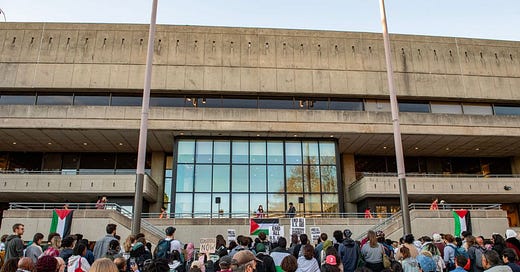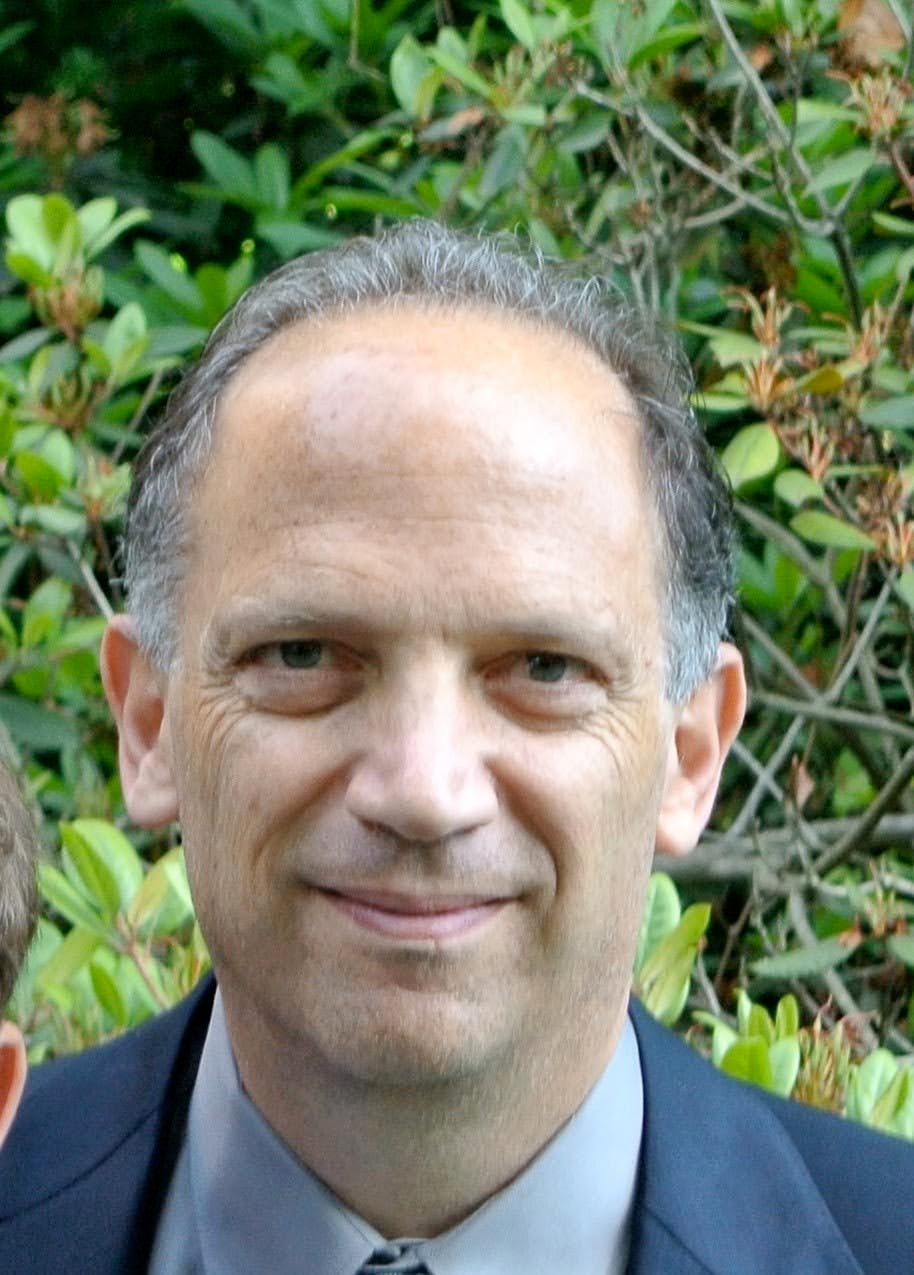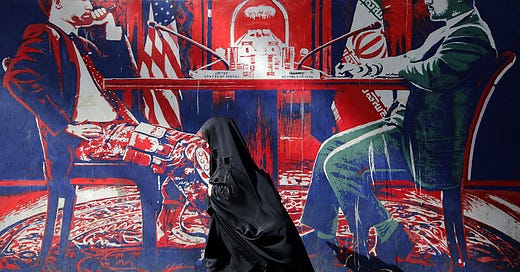
The Free Press

For most academics, getting a job at MIT is a dream. Until October 7, it was for me. But in December, I resigned from my post because I could no longer deal with the pervasive antisemitism on MIT’s campus.
How I got there is a story that is unique to me, but it’s also a story about what’s happening across American academia today.
I was born in Mexico to a Jewish family. I immigrated to the States in the 1980s to obtain a master’s at Harvard, and then moved to Israel for my PhD in computer science from Hebrew University. In 1989, I started working as an assistant professor at MIT, and after a career in the financial industry, I returned in 2019 as a lecturer.
As a computer scientist, I normally don’t have time for politics. But when Hamas invaded Israel on Saturday, October 7, brutally murdering 1,200 Israelis, I emailed the head of my department and urged her to issue a statement of support for Israelis and Jews. I assumed the reason was obvious. The university had sent statements before on various issues—such as a message condemning the murder of George Floyd in 2020 and another standing in solidarity with the Asian community amid a wave of hate crimes in 2021.
On Monday, the head of my department and its office of Diversity, Equity, and Inclusion (DEI) sent out a message titled “A time for community support of each other.”
The message was riddled with equivocations, without mentioning the barbarity of Hamas’s attack, stating only that “we are deeply horrified by the violence against civilians and wish to express our deep concern for all those involved.” I was shocked that my institution—led by people who are meant to see the world rationally—could not simply condemn a brutal terrorist act.
That same day, the protests on campus started. Students chanted “Free Palestine” and “From the river to the sea” with fury and at times glee, like they were reciting catchy songs instead of slogans demanding the erasure of the Jewish people.
Even worse, faculty members started endorsing this behavior. One DEI officer at MIT liked an October 17 post on Twitter stating that “Israel doesn’t have a right to exist, it’s an illegitimate settler-colony like the US.” On October 18, a renowned faculty member in the neuroscience department accused Israel of committing “genocide” on Twitter. Then, the next day, she tweeted that her department was seeking a “diverse pool of candidates” for a tenure-track position in her department’s “inclusive community.” I remember thinking, with bitter irony, that Jewish academics need not apply.
The following month, our faculty newsletter was almost entirely dedicated to the protests, with several professors parroting anti-Israel propaganda. One professor wrote an anonymous editorial “Thanking the Protesting Students” for “reminding us that organizing and voicing dissent—even when it is loud or uncomfortable—is in fact one of our ‘essential activities.’ ” In another editorial called “Standing Together Against Hate: From the River to the Sea, From Gaza to MIT,” linguistics professor Michel DeGraff wrote that the protesters calling for intifada “have given me hope for the future.”
The only voices in the newsletter standing up for Jews were Jewish. But we are too few to fight this battle.
Though I cringed as I read these faculty letters, and shuddered as I walked by protests on campus, nothing has hurt more than watching the Israeli and Jewish students—who comprise fewer than 6 percent of the MIT student body—suffer.
On November 14, one of the Israeli PhD students in my department confided to me that he was taking a few weeks off from the semester to return to Israel—an active war zone—because he needed to escape the toxicity of MIT’s campus. This week, he told me he is considering leaving MIT without completing his PhD.
I am truly in awe of emerging leaders like Talia Khan, an MIT graduate student, who boldly spoke in front of Congress one month ago, explaining how her peers told her the young people murdered at the Nova music festival in Israel on October 7 “deserved to die because they were partying on stolen land.” She has served as a powerful voice for the Jewish community, particularly when so many others have been silent.
To the Israeli kids on campus, October 7 is not just some terrorist attack. Every single one of them knows a victim from that day—someone who was killed, or maimed, or had a loved one taken from them. They are now at the age where their friends back in Israel are fighting in Gaza. Meanwhile, their “peers” on MIT’s campus are labeling them “baby killers” responsible for “committing genocide.”
And despite all they’ve been through, the leadership at MIT has failed them.
In December, MIT’s president Sally Kornbluth gave her infamous testimony in front of Congress. When Rep. Elise Stefanik asked Kornbluth if calling for the genocide of Jews violated MIT’s code of conduct, she said only if it is “targeted at individuals, not when making public statements.” She said that the chants of “intifada” could only be considered antisemitic depending “on the context.”
I sent a series of emails to President Kornbluth long before this hearing, begging her to speak out in support of Jewish students. “They want to hear that the institute is with them,” I wrote. “They are suffering, as I am sure you know.” She was always prompt in responding, and she told me about her attempts to meet with Jewish students by attending dinner at our campus Hillel. I appreciated her for that.
I don’t believe she is the problem. I think the problem at MIT—and across American academia—runs much deeper than the figureheads.
Students at MIT and other elite colleges have been radicalized by faculty members who have encouraged and even led the student body to become social justice warriors, supporting their highly progressive political beliefs. America’s brightest minds are being manipulated by a force they don’t even understand to adopt a narrow view of the world. That this is happening at a place where they’re meant to be exploring a wealth of ideas and have their thinking challenged shocks me.
This thinking has led to an illiberalism on MIT’s campus, where certain speakers have been canceled for having the wrong views. In fall of 2020, environmental scientist Dorian Abbot was uninvited from speaking at the university for expressing unfavorable ideas about affirmative action (even though his talk was about climate and life on other planets). But two years later, MIT’s Women’s & Gender Studies department and Coalition Against Apartheid co-hosted Mohammed El-Kurd, a Palestinian poet who has said that Israelis have “an unquenchable thirst for Palestinian blood.”
Over 65 percent of students from each MIT undergraduate class—or around 800 students—enroll in my Introduction to Algorithms course every year. When I looked at the names of the leaders of some of the most violent anti-Israel groups on our campus, I found a handful of my students on the list. Then I found out that one of my former teaching assistants—a bright young woman—was one of the organizers of the Coalition Against Apartheid and helped bring Mohammed El-Kurd to campus.
I loved my job. But I realized there and then I could no longer train kids in algorithms, knowing they might one day spread this ideology even further through their advanced knowledge. I knew I could no longer be a part of a system that foments antisemitism. In late November, I sat on the ferry I used to take from MIT’s campus back home and decided that I should resign. I have worked hard throughout my professional life to have choices, so I have the luxury of acting on my principles. A few weeks later, on December 13, I handed in my resignation to the head of the department.
My letter stated, in part: “I cannot continue teaching Algorithms to those who lack the most basic critical thinking skills or emotional intelligence. Nor can I teach those who condemn my Jewish identity or my support for Israel’s right to exist in peace with its neighbors.”
My boss asked me to reconsider. But my mind was already made up.
It has been one month since I’ve resigned, and for now, I’m spending a lot of time reflecting. I still have hope MIT can return to its roots—offering one of the best science and engineering educations in the world—and that the good forces can beat the bad.
MIT’s mission is to train the next generation of leaders. But right now, I’m terrified of the thought that today’s students could lead anything in the future.
Mauricio Karchmer is a lecturer at MIT. His last day will be January 15. For another perspective on the crisis in higher education, read economist Kendrick Morales’s Free Press essay, “I Was Fired for Setting Academic Standards.”
Become a Free Press subscriber today:
















These kids are brainwashed and the public schools are adding more fuel to the fire. Here in CA we have an "ethnic studies" requirements that is just a factory of "social justice warriors" meanwhile academics continue to decline
Someone from the new University of Austin should be recruiting him!